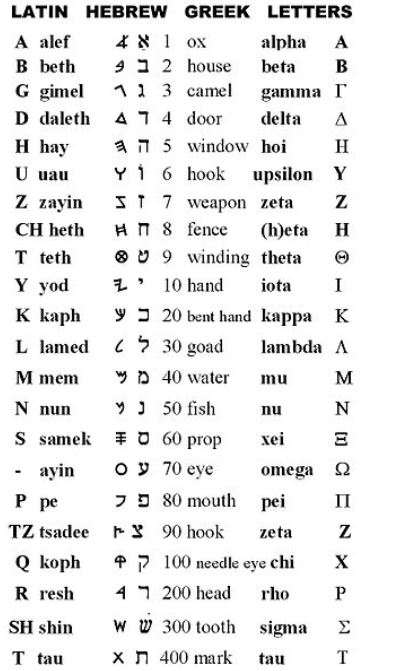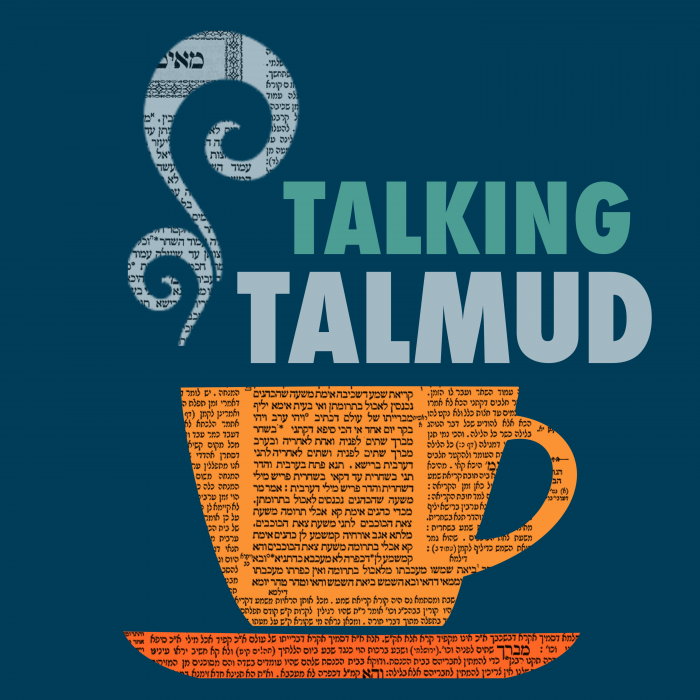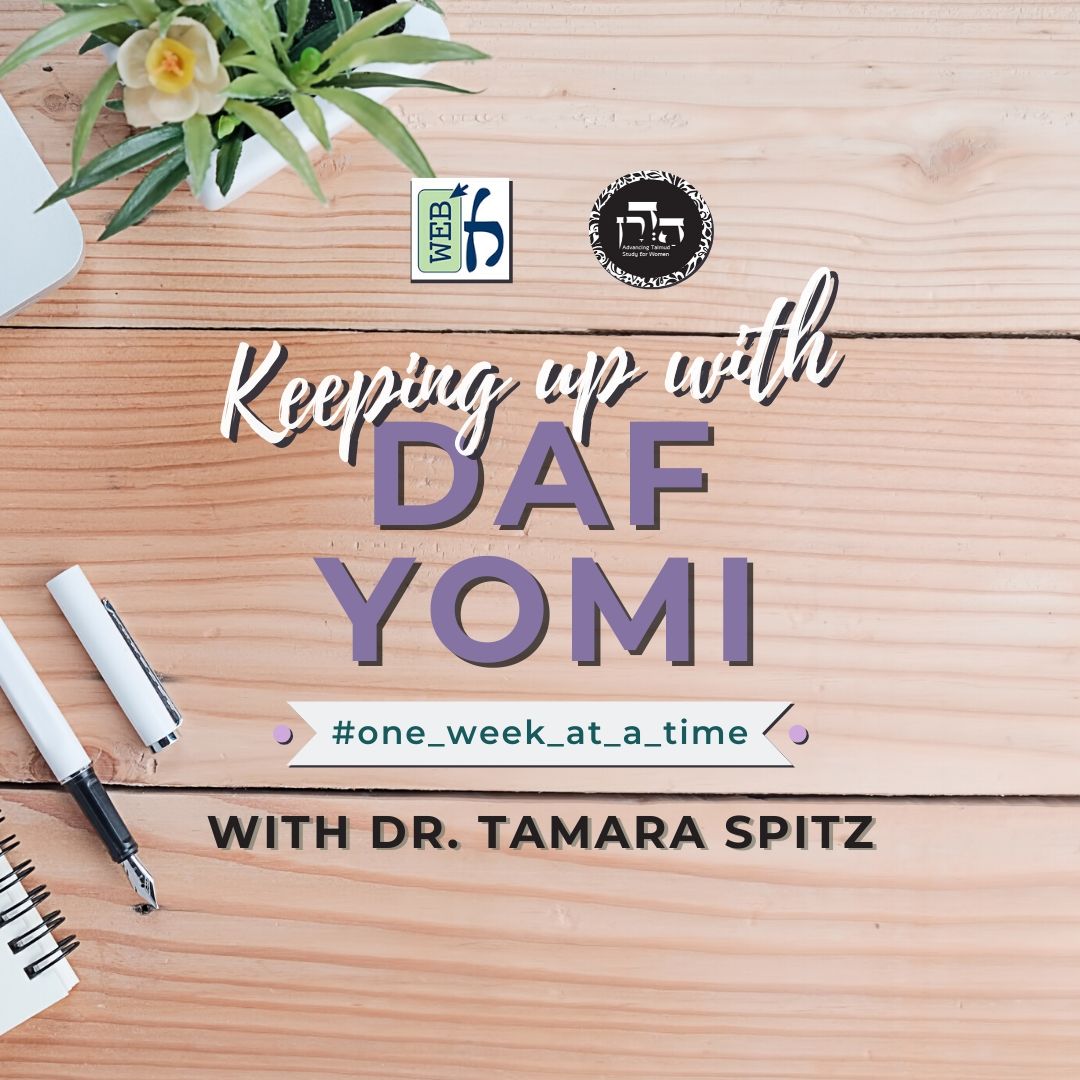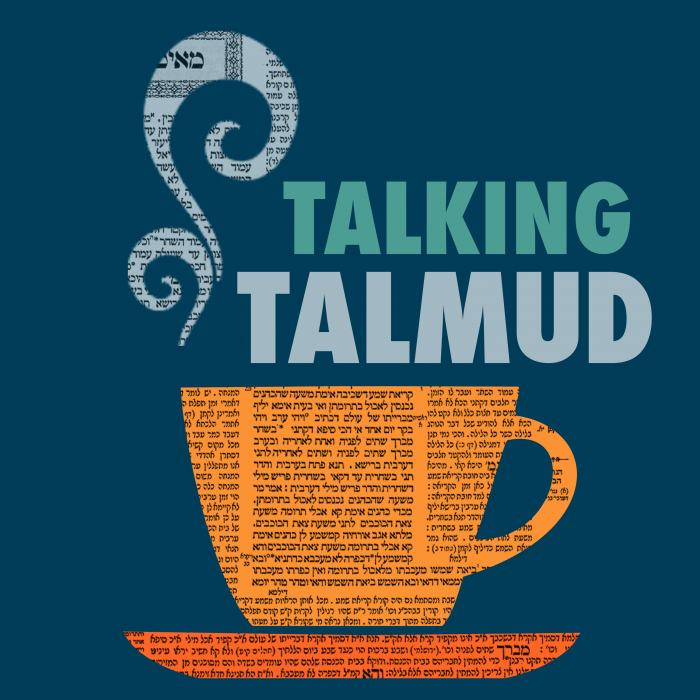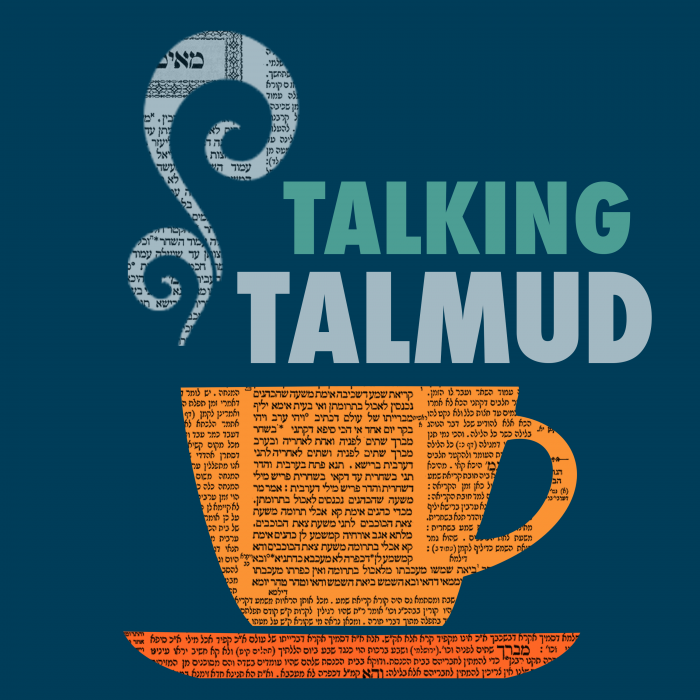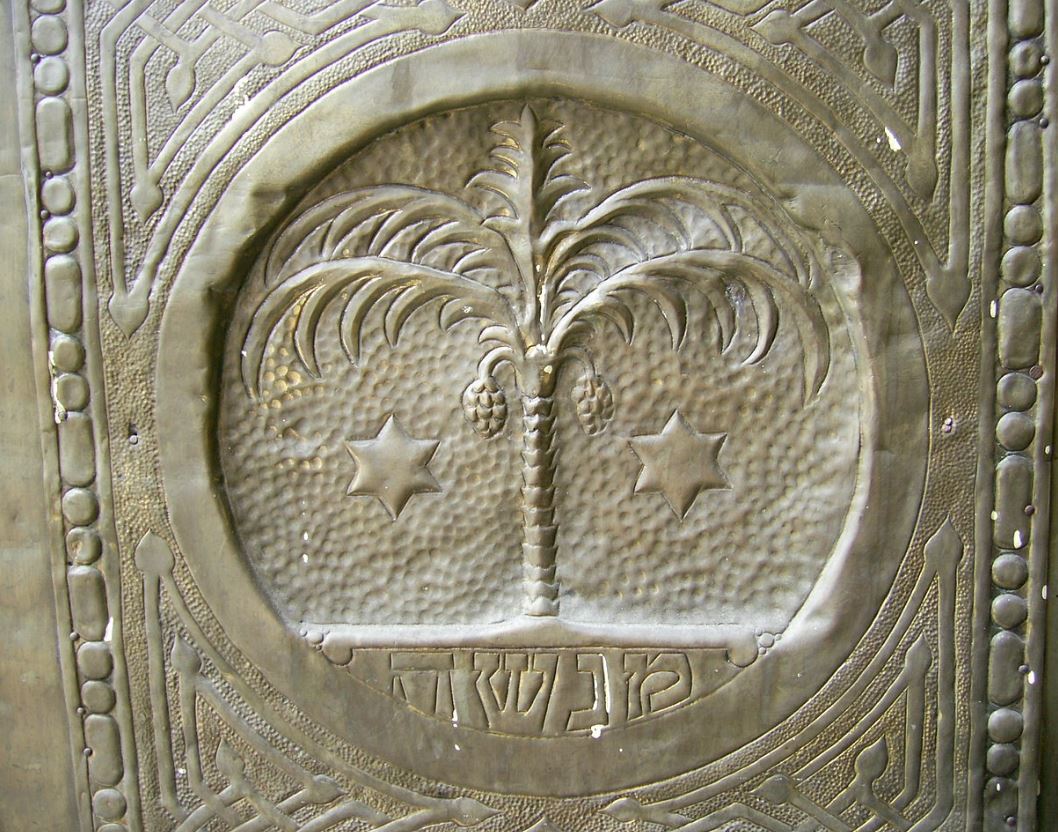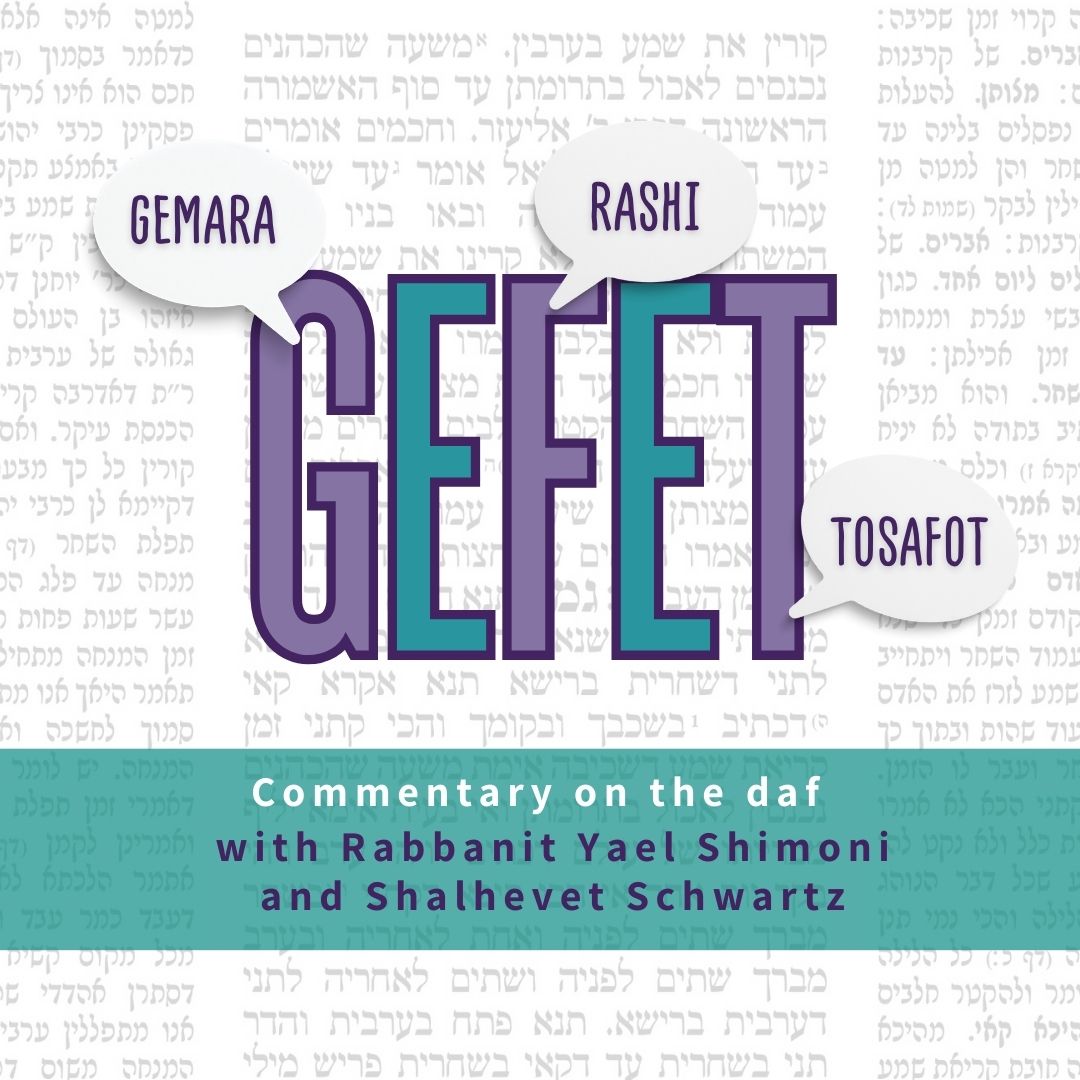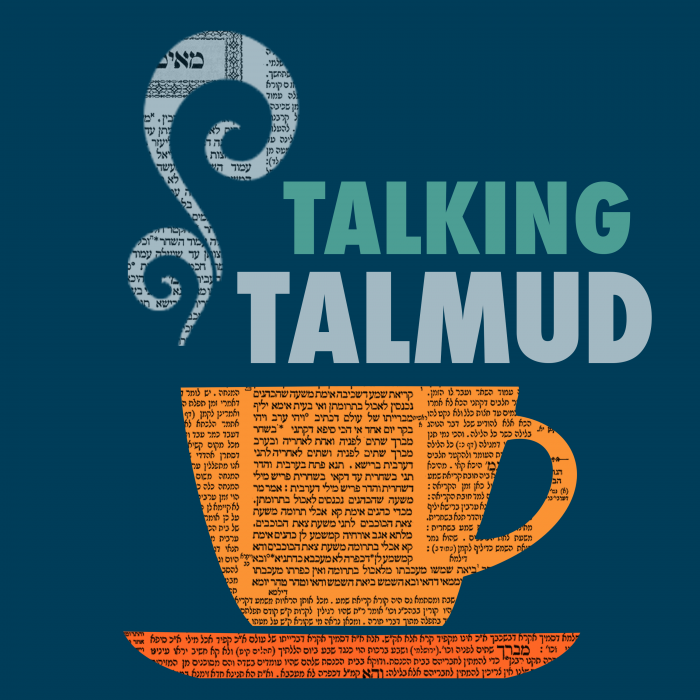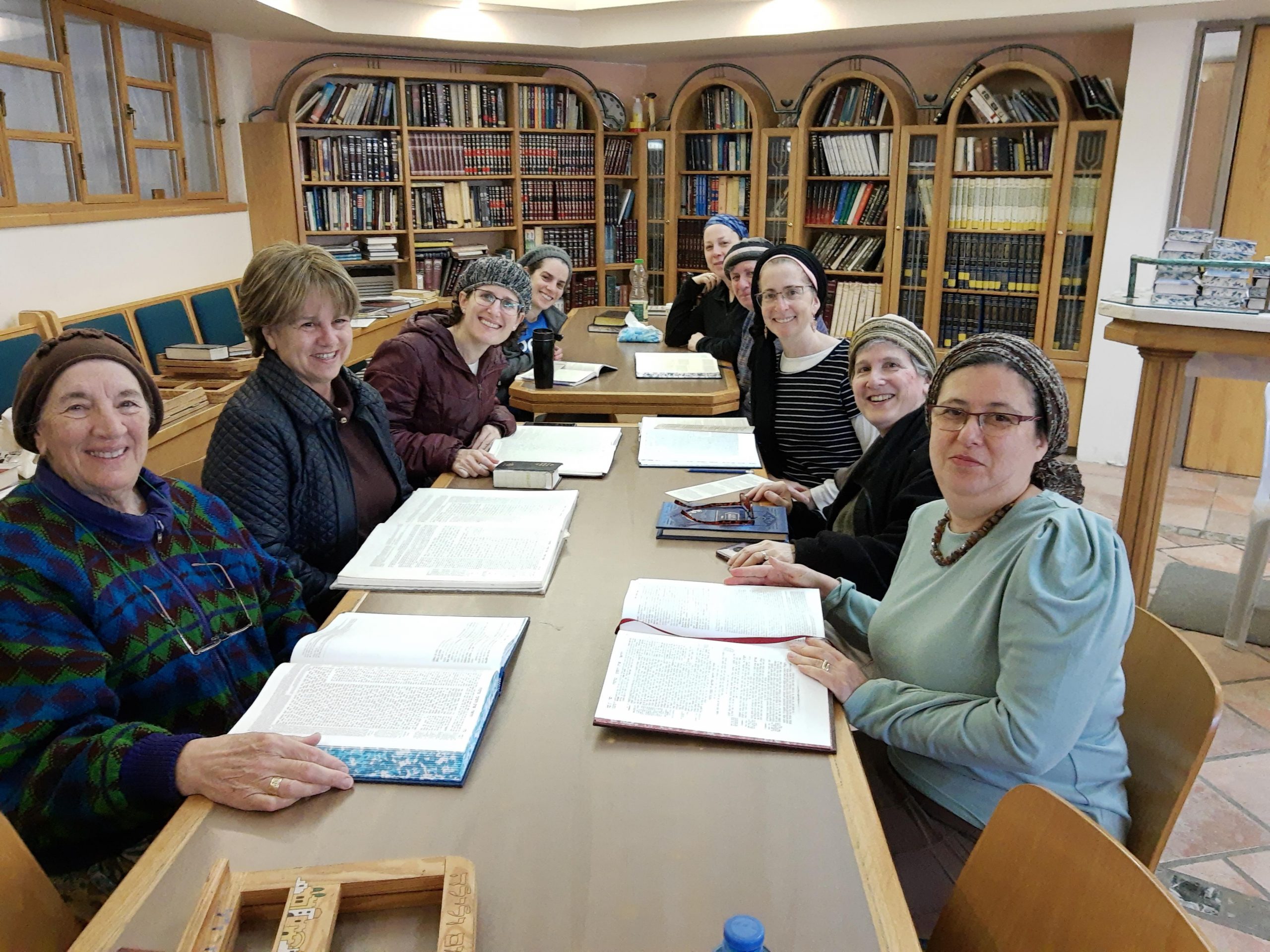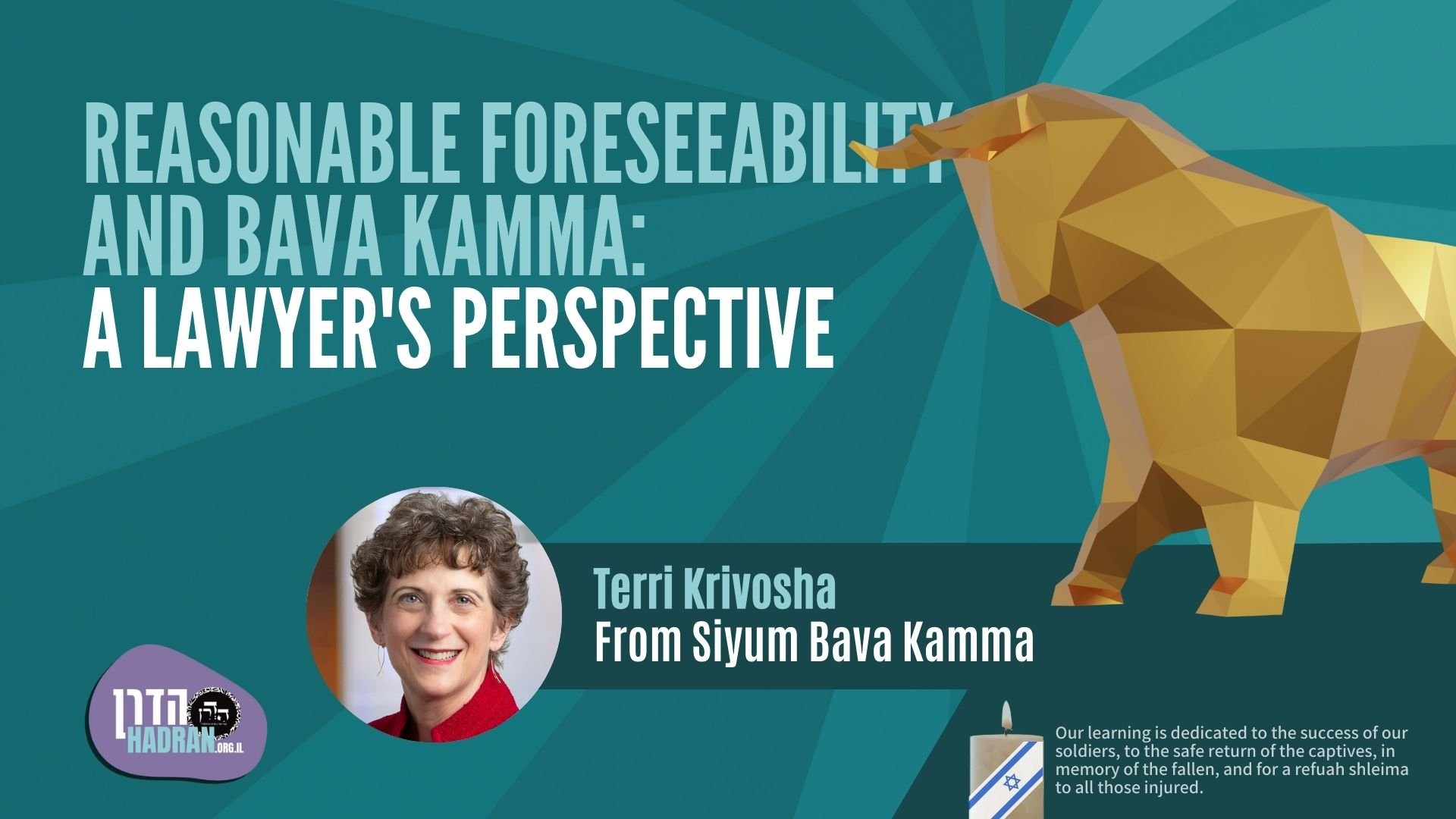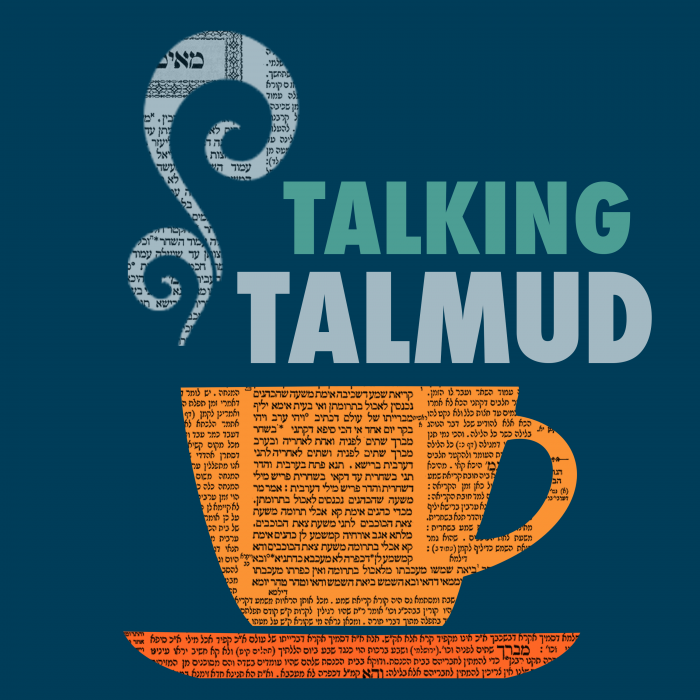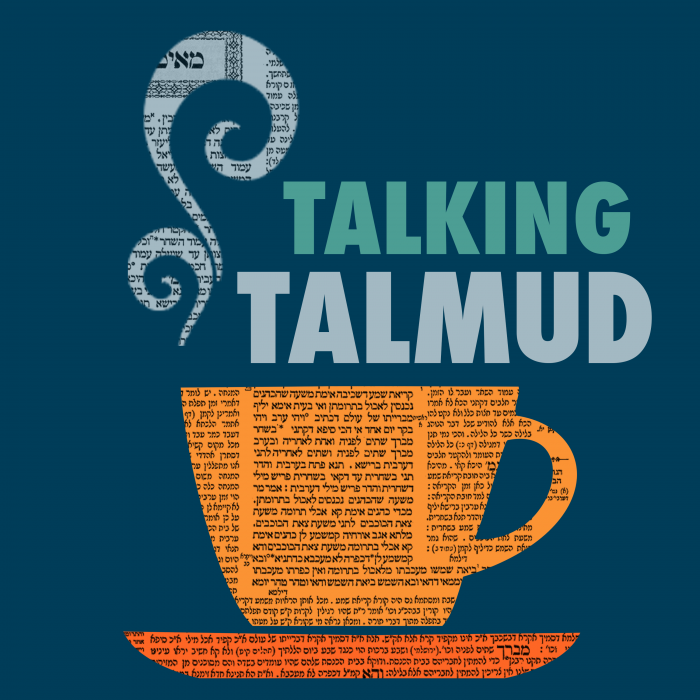For which sins does one get karet if one sins on purpose and brings a sin offering of one sins unwittingly? What did the mishna include not only the list but also said that there are 36 all together. The gemara brings other mishnayot that give a number to the list of items and in each case the gemara gives an explanation. For the prohibition to sleep with one’s sister, why is karet mentioned since it is already mentinoned in general at the end of the section after all the sexual trangressions are mentioned – what can one derive from here?
This week’s learning is sponsored for the merit and safety of Haymanut (Emuna) Kasau, who was 9 years old when she disappeared from her home in Tzfat two years ago, on the 16th of Adar, 5784 (February 25, 2024), and whose whereabouts remain unknown.
This week’s learning is dedicated of the safety of our nation, the soldiers and citizens of Israel, and for the liberation of the Iranian people. May we soon see the realization of “ליהודים היתה אורה ושמחה וששון ויקר”.
Want to dedicate learning? Get started here:


Today’s daily daf tools:
This week’s learning is sponsored for the merit and safety of Haymanut (Emuna) Kasau, who was 9 years old when she disappeared from her home in Tzfat two years ago, on the 16th of Adar, 5784 (February 25, 2024), and whose whereabouts remain unknown.
This week’s learning is dedicated of the safety of our nation, the soldiers and citizens of Israel, and for the liberation of the Iranian people. May we soon see the realization of “ליהודים היתה אורה ושמחה וששון ויקר”.
Today’s daily daf tools:
Delve Deeper
Broaden your understanding of the topics on this daf with classes and podcasts from top women Talmud scholars.
New to Talmud?
Check out our resources designed to help you navigate a page of Talmud – and study at the pace, level and style that fits you.
The Hadran Women’s Tapestry
Meet the diverse women learning Gemara at Hadran and hear their stories.
Keritot 2
מַתְנִי׳ שְׁלֹשִׁים וָשֵׁשׁ כָּרֵיתוֹת בְּתוֹרָה: הַבָּא עַל הָאֵם, וְעַל אֵשֶׁת אָב, וְעַל הַכַּלָּה, הַבָּא עַל הַזָּכוּר, וְעַל הַבְּהֵמָה, וְאִשָּׁה הַמְּבִיאָה הַבְּהֵמָה עָלֶיהָ, הַבָּא עַל אִשָּׁה וּבִתָּהּ, וְאֵשֶׁת אִישׁ, הַבָּא עַל אֲחוֹתוֹ, וְעַל אֲחוֹת אָבִיו, וְעַל אֲחוֹת אִמּוֹ, וְעַל אֲחוֹת אִשְׁתּוֹ, וְעַל אֵשֶׁת אָחִיו, וְעַל אֵשֶׁת אֲחִי אָבִיו, וְעַל אֵשֶׁת אֲחִי אִמּוֹ, וְעַל הַנִּדָּה.
MISHNA: There are thirty-six cases in the Torah with regard to which one who performs a prohibited action intentionally is liable to receive excision from the World-to-Come [karet]. They are: One who engages in sexual intercourse with his mother; or with the wife of his father, even if she is not his mother; or with his daughter-in-law. The same punishment is imposed on a man who engages in intercourse with another male [hazekhur], or who copulates with an animal; and a woman who brings an animal upon her to engage in bestiality. The same punishment is imposed on one who engages in intercourse with a woman and her daughter, or with a married woman. The same punishment is imposed on one who engages in intercourse with his sister, or with his father’s sister, or with his mother’s sister, or with his wife’s sister, or with his brother’s wife, or with the wife of his father’s brother, or with the wife of his mother’s brother, or with a menstruating woman.
וְהַמְגַדֵּף, וְעוֹבֵד עֲבוֹדָה זָרָה, וְהַנּוֹתֵן מִזַּרְעוֹ לַמּוֹלֶךְ, וּבַעַל אוֹב, וּמְחַלֵּל שַׁבָּת, וְטָמֵא שֶׁאָכַל קֹדֶשׁ, וְהַבָּא אֶל הַמִּקְדָּשׁ טָמֵא, וְהָאוֹכֶל חֵלֶב, וָדָם, וְנוֹתָר, וּפִיגּוּל, וְהַשּׁוֹחֵט, וּמַעֲלֶה בַּחוּץ,
And these too are liable to receive karet: One who blasphemes the name of Heaven, and one who worships an idol, and one who gives of his children to Molekh (see Leviticus 20:1–5), and a necromancer, and one who desecrates Shabbat. And the same is the punishment of one who is ritually impure who ate sacrificial food; and one who enters the Temple while ritually impure; and one who eats forbidden fat, or consumes blood, or eats meat left over from an offering after the time allotted for its consumption [notar], or eats meat of an offering that was sacrificed with the intent to consume it after its designated time [piggul]; and one who slaughters offerings and offers them up outside the Temple.
וְהָאוֹכֵל חָמֵץ בַּפֶּסַח, וְהָאוֹכֵל וְהָעוֹשֶׂה מְלָאכָה בְּיוֹם הַכִּפּוּרִים, וְהַמְפַטֵּם אֶת הַשֶּׁמֶן, וְהַמְפַטֵּם אֶת הַקְּטֹרֶת, וְהַסָּךְ אֶת הַשֶּׁמֶן הַמִּשְׁחָה. וְהַפֶּסַח וְהַמִּילָה מִצְוַת עֲשֵׂה.
And these too are liable to receive karet: One who eats leavened bread on Passover, and one who eats or performs prohibited labor on Yom Kippur. And the same is the punishment of one who blends the anointing oil according to the specifications of the oil prepared by Moses in the wilderness (see Exodus 30:22–33); and one who blends the incense according to the specifications of the incense used in the Temple service for purposes other than use in the Temple; and one who applies the anointing oil to his skin. And one is liable to receive karet for failure to fulfill the mitzva of bringing the Paschal offering and the mitzva of circumcision, which unlike the cases of prohibitions enumerated in the mishna, are positive mitzvot.
עַל אֵלּוּ חַיָּיבִין עַל זְדוֹנוֹ כָּרֵת, וְעַל שִׁגְגָתוֹ חַטָּאת, וְעַל לֹא הוֹדַע שֶׁלָּהֶם אָשָׁם תָּלוּי, חוּץ מִן הַמְטַמֵּא מִקְדָּשׁ וְקָדָשָׁיו, מִפְּנֵי שֶׁהוּא בְּעוֹלֶה וְיוֹרֵד, דִּבְרֵי רַבִּי מֵאִיר.
For any of these prohibitions, one is liable to receive karet for its intentional violation and to bring a sin offering for its unwitting violation. And for their violation in a case where it is unknown to him whether or not he transgressed, he is liable to bring a provisional guilt offering, which provides provisional atonement until he discovers whether or not he transgressed. This is the halakha for all of the transgressions listed above except for one who defiles the Temple, i.e., he enters the Temple while ritually impure, or partakes of its consecrated items while ritually impure. In these cases he does not bring a provisional guilt offering because he is obligated to bring a sliding-scale offering for a definite transgression. This is the statement of Rabbi Meir.
וַחֲכָמִים אוֹמְרִים: אַף הַמְגַדֵּף, שֶׁנֶּאֱמַר: ״תּוֹרָה אַחַת יִהְיֶה לָכֶם לָעֹשֶׂה בִּשְׁגָגָה״, יָצָא מְגַדֵּף שֶׁאֵינוֹ עוֹשֶׂה מַעֲשֶׂה.
And the Rabbis say: The halakha is the same even with regard to the one who blasphemes, as it is stated with regard to the sin offering: “You shall have one law for him who performs the action unwittingly” (Numbers 15:29), excluding one who blasphemes, as he does not perform an action but sins with speech.
גְּמָ׳ מִנְיָינָא לְמָה לִי? אָמַר רַבִּי יוֹחָנָן: שֶׁאִם עֲשָׂאָן כּוּלָּן בְּהֶעְלֵם אַחַת – חַיָּיב עַל כׇּל אַחַת וְאַחַת.
GEMARA: The Gemara asks: Why do I need the mishna to state this tally of cases where one who performs the action is liable to receive karet? Why does it state a number? All thirty-six are listed in the mishna, and one could simply count them to discover how many there are. Rabbi Yoḥanan said: By listing the tally, the mishna is teaching that if one performed all of them in the course of one lapse of awareness, he is liable to receive punishment for each and every one, i.e., to bring thirty-six sin offerings.
וְתוּ, הָא דִּתְנַן: אֲבוֹת מְלָאכוֹת אַרְבָּעִים חָסֵר אַחַת, מִנְיָינָא לְמָה לִי? שֶׁאִם עֲשָׂאָן כּוּלָּן בְּהֶעְלֵם אַחַת – חַיָּיב עַל כׇּל אַחַת וְאַחַת.
The Gemara asks: And furthermore, with regard to that which we learned in a mishna (Shabbat 73a): The primary categories of labor are forty-less-one; why do I need this tally of forty-less-one? The Gemara answers: By listing the tally the mishna is teaching that if one performed all of the prohibited labors in one lapse of awareness during which he was unaware of the prohibition involved, he is liable to bring a sin offering for each and every one.
תּוּ, הָא דִּתְנַן: אַרְבָּעָה מְחוּסְּרֵי כַּפָּרָה, מִנְיָינָא לְמָה לִי?
The Gemara asks: And furthermore, with regard to that which we learned in a mishna (8b): There are four people who have not yet brought an atonement offering to complete their purification process and may not eat sacrificial meat until they bring the requisite offerings. The mishna then teaches: And these are the people who have not yet brought an atonement offering: The zav, and the zava, and the woman after childbirth, and the leper. Why do I need this tally of four?
לְאַפּוֹקֵי מִדְּרַבִּי אֱלִיעֶזֶר בֶּן יַעֲקֹב, דְּאָמַר: חֲמִשָּׁה הָוֵי, דְּתַנְיָא, רַבִּי אֱלִיעֶזֶר בֶּן יַעֲקֹב אוֹמֵר: גֵּר מְחוּסַּר כַּפָּרָה עַד שֶׁיִּזָּרֵק דָּם עָלָיו, אַהָכִי תְּנָא אַרְבָּעָה.
The Gemara answers: By listing the tally, the mishna serves to exclude the opinion of Rabbi Eliezer ben Ya’akov, who says there are five such individuals. As it is taught in a baraita that Rabbi Eliezer ben Ya’akov says: A convert is also one who has not yet brought an atonement offering and he may not partake of sacrificial meat, although he was circumcised and immersed in a ritual bath, until the priest sprinkles the blood of his offering on the altar on his behalf. It is for this reason that the mishna teaches four, to emphasize that there are not five such people.
תּוּ, הָא דִּתְנַן: אַרְבָּעָה מְבִיאִין עַל הַזָּדוֹן כִּשְׁגָגָה, מִנְיָינָא לְמָה לִי?
The Gemara asks: And furthermore, with regard to that which we learned in that same mishna (8b): And there are four who bring an offering for the intentional transgression of a prohibition as they do for the unwitting transgression of a prohibition: One who engages in intercourse with a designated maidservant (see Leviticus 19:20–22), a nazirite who became ritually impure (see Numbers 6:9–12), one who takes a false oath that he does not know testimony on behalf of another (Leviticus 5:1), and one who takes a false oath on a deposit, i.e., that that an item belonging to another is not in his possession (Leviticus 5:21–26). Why do I need this tally of four?
לְאַפּוֹקֵי מִדְּרַבִּי שִׁמְעוֹן, דְּתַנְיָא, רַבִּי שִׁמְעוֹן אוֹמֵר: שְׁבוּעַת הַפִּקָּדוֹן – לֹא נִיתָּן זְדוֹנָהּ לְכַפָּרָה, אַהָכִי תְּנָא אַרְבָּעָה.
The Gemara answers: By listing the tally, the mishna serves to exclude the opinion of Rabbi Shimon. As it is taught in a baraita that Rabbi Shimon says: The intentional transgressor who takes a false oath on a deposit is not given the opportunity for atonement by bringing an offering. It is for this reason that the mishna teaches four, to emphasize that taking a false oath on a deposit is included in this list.
תּוּ, הָא דִּתְנַן: חֲמִשָּׁה מְבִיאִין קׇרְבָּן אֶחָד עַל עֲבֵירוֹת הַרְבֵּה, מִנְיָינָא לְמָה לִי?
The Gemara asks: And furthermore, with regard to that which we learned in a mishna (9a): There are five people who bring one offering for several transgressions, i.e., for violating the same transgression several times; and the mishna then teaches: These individuals bring one offering for several transgressions: One who engages in several acts of intercourse with an espoused maidservant; a nazirite who became ritually impure via several instances of ritual impurity; one who issues a warning to his wife with regard to entering into seclusion with several men; a leper who was afflicted with several instances of leprosy; and a woman who gave birth to several offspring. Why do I need this tally of five?
מִשּׁוּם דְּקָא בָּעֵי לְמִיתְנָא סֵיפָא: נָזִיר אִם נִטְמָא טוּמְאוֹת הַרְבֵּה, וּמַשְׁכַּחַתְּ לַהּ כְּגוֹן דְּאִיטַּמִּי בִּשְׁבִיעִי וְחָזַר וְנִטְמָא בַּשְּׁבִיעִי, וּמַנִּי? רַבִּי יוֹסֵי בְּרַבִּי יְהוּדָה הִיא, דְּאָמַר: נְזִירוּת דְּטָהֲרָה, מִן שְׁבִיעִי הוּא דְּחָיֵיל עֲלֵיהּ.
The Gemara answers: The tanna of the mishna lists the tally because he wants to teach the latter clause: This also applies to a nazirite if he became ritually impure with several instances of ritual impurity. The tally of five includes the case of a nazirite. The Gemara explains what the novelty of this case is: And you find this, that a nazirite can contract ritual impurity several times consecutively, in a case where he became ritually impure on the seventh day and, after undergoing the purification process, again became ritually impure on the seventh day. And in accordance with whose opinion is it? It is in accordance with the opinion of Rabbi Yosei, son of Rabbi Yehuda, who says that the naziriteship of purity, i.e., the naziriteship one must observe afresh after his purification, takes effect on the nazirite from the seventh day of his purification process.
דְּאִי תֵּאמַר רַבִּי הִיא, כֵּיוָן דִּנְזִירוּת דְּטׇהֳרָה עַד שְׁמִינִי לָא חָיְילָא עֲלֵיהּ, הֵיכִי מַשְׁכַּחַתְּ לַהּ?
The Gemara clarifies: As, if you say the mishna is in accordance with the opinion of Rabbi Yehuda HaNasi, that is difficult: Since he says that the naziriteship of purity does not take effect on the nazirite until the eighth day, how can you find a case in which these circumstances apply, i.e., that a nazirite can be considered impure with several instances of ritual impurity in the same term of naziriteship?
אִי דְּנִטְמָא בִּשְׁבִיעִי וְחָזַר וְנִטְמָא בִּשְׁבִיעִי – כּוּלַּהּ חֲדָא טוּמְאָה אֲרִיכְתָּא הִיא.
The Gemara explains why, according to the opinion of Rabbi Yehuda HaNasi, this is not possible: If this case involves a nazirite who became ritually impure on the seventh day, and, after undergoing the purification process, again became ritually impure on the seventh day, Rabbi Yehuda HaNasi would hold that all these impurities are in fact one instance of long ritual impurity. His reasoning is that the nazirite never reached the eighth day, which would renew his observance of naziriteship in purity. If so, the mishna would not refer to this as a case of multiple impurities.
וְאִי דְּנִטְמָא בַּשְּׁמִינִי וְחָזַר וְנִטְמָא בַּשְּׁמִינִי, כֵּיוָן דְּיָצָא בְּשָׁעָה הָרְאוּיָה לְהָבִיא בָּהּ קׇרְבָּן, חַיָּיב עַל כׇּל אַחַת וְאַחַת! אֶלָּא שְׁמַע מִינַּהּ רַבִּי יוֹסֵי בְּרַבִּי יְהוּדָה הִיא.
And if the mishna is referring to a nazirite who became ritually impure on the eighth day and, after undergoing the purification process, again became ritually impure on the eighth day, the ruling of the mishna would not apply either. Since he left his state of impurity at an appropriate time to bring his offering, as he can bring his offering on the eighth day, it is not considered a continuation of the previous ritual impurity and he is liable to bring a separate offering for each and every instance of impurity. Rather, conclude from it that this mishna is in accordance with the opinion of Rabbi Yosei, son of Rabbi Yehuda. It is to emphasize this fact that the mishna lists the tally.
מַאי רַבִּי וּמַאי רַבִּי יוֹסֵי בְּרַבִּי יְהוּדָה? דְּתַנְיָא: ״וְקִדַּשׁ אֶת רֹאשׁוֹ בַּיּוֹם הַהוּא״ – בְּיוֹם הֲבָאַת קׇרְבְּנוֹתָיו, דִּבְרֵי רַבִּי. רַבִּי יוֹסֵי בְּרַבִּי יְהוּדָה אוֹמֵר: בְּיוֹם תִּגְלַחְתּוֹ.
The Gemara asks: What is the source of this opinion of Rabbi Yehuda HaNasi and what is the source of this opinion of Rabbi Yosei, son of Rabbi Yehuda? The Gemara answers: As it is taught in a baraita with regard to a verse that discusses a nazirite who became ritually impure and brought two birds to the Temple: “And the priest shall prepare one for a sin offering, and the other for a burnt offering, and make atonement for him, for he sinned by the soul, and he shall sanctify his head that same day” (Numbers 6:11). The verse is referring to the day of the bringing of his offerings, which is the eighth day of his purification; this is the statement of Rabbi Yehuda HaNasi. And Rabbi Yosei, son of Rabbi Yehuda, says the verse is referring to the day of his shaving, i.e., the seventh day of his purification.
תּוּ, הָא דִּתְנַן: חֲמִשָּׁה מְבִיאִין קׇרְבַּן עוֹלֶה וְיוֹרֵד, מִנְיָינָא לְמָה לִי?
The Gemara returns to its series of questions concerning the mention of tallies in mishnayot. The Gemara asks: And furthermore, with regard to that which we learned in a mishna (9a): And there are five people who bring a sliding-scale offering, which is determined by the financial status of the sinner; and the mishna then teaches (10b): These bring a sliding-scale offering: One brings such an offering for hearing the voice of an oath, and for a false oath of the utterance of the lips, and for the defiling of the Temple and its sacred foods, and the woman after childbirth, and the leper. Why do I need this tally of five?
מִשּׁוּם דְּקָתָנֵי סֵיפָא: נָשִׂיא כַּיּוֹצֵא בָּהֶן. חֲמִשָּׁה לְאַפּוֹקֵי מִדְּרַבִּי אֱלִיעֶזֶר, דְּאָמַר: נָשִׂיא מֵבִיא שָׂעִיר.
The Gemara answers: The tanna of the mishna lists the tally because of the halakha taught in the latter clause, as the latter clause teaches, in a different mishna (Horayot 8b): The court is not liable for issuing a ruling with regard to the hearing of a voice, or for a false oath of the utterance of the lips, or for the defiling of the Temple and its sacred foods. The status of the king is like that of the court and he is exempt from bringing an offering in these cases. It is for this reason the mishna teaches five, to exclude the opinion of Rabbi Eliezer, who says that a king brings a goat, i.e., a fixed sin offering, instead of a sliding-scale offering for the defiling of the Temple and its sacred foods.
תּוּ, הָא דִּתְנַן: אַרְבָּעָה אֲבוֹת נְזִיקִין, מִנְיָנָא לְמָה לִי?
The Gemara asks: And furthermore, with regard to that which we learned in a mishna (Bava Kamma 2a): There are four primary categories of damage: The category of Ox, the category of Pit, the category of Maveh, and the category of Fire. Why do I need this tally of four?
לְאַפּוֹקֵי מִדְּרַבִּי אוֹשַׁעְיָא, דְּאָמַר: שְׁלֹשָׁה עָשָׂר אֲבוֹת נְזִיקִין הֵן. וּלְרַבִּי אוֹשַׁעְיָא, מִנְיָינָא לְמָה לִי? לְאַפּוֹקֵי מִדְּרַבִּי חִיָּיא, דְּאָמַר: עֶשְׂרִים וְאַרְבָּעָה אֲבוֹת נְזִיקִין. וּלְרַבִּי חִיָּיא מִנְיָנָא לְמָה לִי? לְאַפּוֹקֵי מָסוֹר וּמְפַגֵּל.
The Gemara answers: By listing the tally, the mishna serves to exclude the opinion of Rabbi Oshaya, who says (Tosefta, Bava Kamma 9:1): There are thirteen primary categories of damage. And according to Rabbi Oshaya, why do I need this tally of thirteen? By listing the tally, he serves to exclude the opinion of Rabbi Ḥiyya, who says: There are twenty-four primary categories of damage. And according to Rabbi Ḥiyya, why do I need this tally of twenty-four? By listing the tally, he serves to exclude the case of an informer who causes the authorities to confiscate the property of another, and a priest who renders another’s offering piggul, as Rabbi Ḥiyya concedes that these are not included in the primary categories of damage.
אָמַר מָר: שֶׁאִם עֲשָׂאָן כּוּלָּן בְּהֶעְלֵם אַחַת – חַיָּיב עַל כׇּל אַחַת וְאַחַת.
§ The Gemara returns to discuss the statement of Rabbi Yoḥanan. The Master said earlier: By listing the tally, the mishna is teaching that if he performed all of them, i.e., he unwittingly violated every prohibition, in the course of one lapse of awareness, he is liable to receive punishment for each and every one, i.e., to bring thirty-six sin offerings.
בִּשְׁלָמָא פָּטוּר לִגְמָרֵי לָא מָצֵית אָמְרַתְּ, דִּכְתִיב: ״כִּי כׇּל אֲשֶׁר יַעֲשֶׂה מִכֹּל הַתּוֹעֵבֹת הָאֵלֶּה וְנִכְרְתוּ״. אֶלָּא אֵימָא: עֲבַר חֲדָא – נִתְחַיֵּיב חֲדָא, עֲבַר כּוּלְּהוּ בְּהֶעְלֵם אַחַת – אֵינוֹ חַיָּיב אֶלָּא אַחַת!
The Gemara raises a difficulty with regard to the prohibitions against engaging in forbidden intercourse: Granted, you cannot say that one who unwittingly violates every prohibition against engaging in forbidden intercourse is entirely exempt, as it is written: “For whoever shall do any of these abominations, the souls that do them shall be cut off from among their people” (Leviticus 18:29), and as they all are punishable by karet he is liable to bring a sin offering for his unwitting transgression. But why not say that if he transgressed one prohibition he becomes liable to bring one sin offering, and likewise if he transgressed all of them in one lapse of awareness he is liable to bring only one sin offering.
אָמַר רַבִּי יוֹחָנָן: לְכָךְ יָצְאָה כָּרֵת בַּאֲחוֹתוֹ – לְחַלֵּק.
Rabbi Yoḥanan said: It is for this reason that karet which one incurs for engaging in intercourse with one’s sister is singled out and mentioned independently of the other acts of forbidden intercourse (Leviticus 20:17). This serves to separate the prohibitions and teach that one is liable to receive a separate punishment of karet or to bring a sin offering for each individual prohibition against forbidden intercourse.
מַתְקֵיף לַהּ רַב בִּיבִי בַּר אַבָּיֵי, אֵימָא: אֲחוֹתוֹ דִּפְרַט קְרָא – נִיחַיַּיב חֲדָא עֲלַהּ, וְכוּלָּן כֵּיוָן דִּבְהֶעְלֵם אַחַת – לָא נִיחַיַּיב אֶלָּא אַחַת!
Rav Beivai bar Abaye objects to this: Why not say: With regard to one who engages in intercourse with his sister, which the verse detailed separately, he becomes liable to bring one sin offering for it, but with regard to all the other acts of forbidden intercourse, once he transgressed all of them in one lapse of awareness he becomes liable to bring only one sin offering for all of them.
וּלְרַב בִּיבִי בַּר אַבָּיֵי, מִי לֵית לֵיהּ הֲדָא דְּתַנְיָא: כׇּל דָּבָר שֶׁהָיָה בַּכְּלָל וְיָצָא מִן הַכְּלָל לְלַמֵּד, לֹא לְלַמֵּד עַל עַצְמוֹ יָצָא אֶלָּא לְלַמֵּד עַל הַכְּלָל כּוּלּוֹ יָצָא.
The Gemara objects: And according to Rav Beivai bar Abaye, does he not accept that hermeneutical principle which is taught in a baraita: Any matter that was included in a generalization, but was singled out to teach a halakha, was singled out to teach that halakha not only about itself but to teach that halakha about the entire generalization.
כֵּיצַד? ״וְהַנֶּפֶשׁ אֲשֶׁר תֹּאכַל בָּשָׂר וְגוֹ׳״, וַהֲלֹא שְׁלָמִים בִּכְלָל הַקֳּדָשִׁים הָיוּ. לָמָּה יָצְאוּ?
The baraita explains: How so? The verse states: “But the soul that eats of the flesh of the sacrifice of peace offerings that belong to the Lord, with his ritual impurity upon him, that soul shall be cut off from his people” (Leviticus 7:20). But weren’t peace offerings included in the general category of all sacrificial offerings; why, then, were they explicitly singled out in this verse?
לְהַקִּישׁ אֲלֵיהֶן: מָה שְּׁלָמִים שֶׁהֵן קׇדְשֵׁי מִזְבֵּחַ וְחַיָּיבִין עֲלֵיהֶן – אַף כׇּל שֶׁהֵן קׇדְשֵׁי מִזְבֵּחַ חַיָּיבִין עֲלֵיהֶן, יָצְאוּ קׇדְשֵׁי בֶּדֶק הַבַּיִת!
The baraita answers: They were singled out to juxtapose the halakha of other offerings to them, teaching: Just as peace offerings are unique in that they are consecrated for the altar and one is liable to receive karet for partaking of them while impure, so too, with regard to all food that is consecrated for the altar, one is liable to receive karet for partaking of them while impure. This excludes from this halakha items that are consecrated for Temple maintenance. The same reasoning should apply to the singling out of the prohibition against engaging in intercourse with one’s sister, as it teaches that one is liable separately for all the categories of forbidden relations.
אֲמַר לֵיהּ רַב בִּיבִי: בַּר מִינַּהּ. לָאו מִי אָמְרַתְּ הָתָם יָצְאוּ קׇדְשֵׁי בֶּדֶק הַבַּיִת?
Rav Beivai bar Abaye said to the Sage who raised this difficulty: The discussion of Rabbi Yoḥanan’s statement should be held apart from that baraita. As, didn’t you say there that the comparison to peace offerings excludes items that are consecrated for Temple maintenance? The matter that was singled out teaches its halakha only with regard to cases that are similar to it. The same reasoning should apply with regard to the prohibition against engaging in intercourse with one’s sister.
הָכָא נָמֵי: מָה אֲחוֹתוֹ מְיוּחֶדֶת שֶׁהִיא עֶרְוָה וְאֵין לָהּ הֶיתֵּר בְּחַיֵּי אוֹסְרָהּ, אַף כֹּל שֶׁאֵין לָהּ הֶיתֵּר בְּחַיֵּי אוֹסְרָהּ, יָצְאָה אֵשֶׁת אִישׁ, שֶׁיֵּשׁ לָהּ הֶיתֵּר בְּחַיֵּי בַעֲלָהּ!
Rav Beivai elaborates: Here too, just as the case of one’s sister is unique in that she is a forbidden relative who cannot be permitted during the entire life of the one who prohibits her, i.e., her brother, as she will always be his sister, so too, the halakha that one is liable to bring a sin offering for the transgression of each prohibition applies to any forbidden relative who cannot be permitted in the life of the one who prohibits her. This excludes a married woman, who can be permitted in the life of the one who prohibits her, i.e., her husband, as their relationship can be terminated by means of divorce. If so, one would not be liable to bring a separate sin offering for each instance of engaging in intercourse with a married woman, whereas Rabbi Yoḥanan maintains that one is liable to bring a sin offering for violating each of the prohibitions listed in the mishna, including the one concerning a married woman.
אָמַר רַבִּי יוֹנָה וְאִיתֵּימָא רַב הוּנָא בְּרֵיהּ דְּרַב יְהוֹשֻׁעַ, אָמַר קְרָא: ״כִּי כׇּל אֲשֶׁר יַעֲשֶׂה מִכֹּל הַתּוֹעֵבֹת וְגוֹ׳״, הוֹאִיל וְכָךְ הִקִּישׁ הוּא, הוּקְשׁוּ כׇּל הָעֲרָיוֹת כּוּלָּן לַאֲחוֹתוֹ: מָה אֲחוֹתוֹ חַיָּיבִין עָלֶיהָ בִּפְנֵי עַצְמָהּ, אַף כֹּל חַיָּיבִין עָלֶיהָ בִּפְנֵי עַצְמָהּ.
Rabbi Yona said in response, and some say this was stated by Rav Huna, son of Rav Yehoshua: The verse states: “For whoever shall do any of these abominations, the souls that do them shall be cut off from among their people” (Leviticus 18:29). Since this is a juxtaposition, it means that in this verse all of those with whom relations are forbidden are juxtaposed to the case of one’s sister, written in that passage, as follows: Just as with regard to one’s sister he is liable to bring a separate sin offering for engaging in intercourse with her alone, so too, with regard to any one of all the cases of forbidden relations, one is liable to bring a separate sin offering for engaging in intercourse with that woman alone. When a halakha is derived by juxtaposition the cases do not have to be entirely similar.
וּלְרַבִּי יִצְחָק דְּאָמַר: חַיָּיבֵי כָרֵיתוֹת בִּכְלָל הָיוּ, וְלָמָּה יָצְאָה כָּרֵת בַּאֲחוֹתוֹ – לְדוּנָהּ בְּכָרֵת וְלֹא בְּמַלְקוֹת,
The Gemara objects: But this presents a difficulty according to the opinion of Rabbi Yitzḥak, who says: All those liable to receive karet in cases of incest were included in the principle: “For whoever shall commit any of these abominations, even the people who commit them shall be cut off from among their people” (Leviticus 18:29). And why was karet incurred by engaging in intercourse with one’s sister singled out in Leviticus 20:17? It was singled out to judge it, so that the transgressors receive the punishment of karet and not the punishment of lashes. Although they have violated a prohibition, which generally carries the punishment of lashes, they are not flogged, as they are liable to receive the more severe punishment of karet.
לְחַלֵּק מְנָא לֵיהּ? נָפְקָא לֵיהּ מִ״וְּאֶל אִשָּׁה בְּנִדַּת טוּמְאָתָהּ לֹא תִקְרַב״ – לְחַלֵּק עַל כׇּל אִשָּׁה וְאִשָּׁה.
The Gemara explains the difficulty: From where does Rabbi Yitzḥak learn to separate the prohibitions and teach that one is liable to receive a separate punishment of karet or to bring a sin offering for each violation of the prohibition against forbidden intercourse? Unlike Rabbi Yoḥanan, he cannot derive it from the above verse, as he learns this aforementioned halakha from that verse. The Gemara answers: He derives it from the verse: “And you shall not approach a woman to uncover her nakedness as long as she is impure by her menstruation” (Leviticus 18:19). Since the verse could have stated simply: And you shall not approach a menstruating woman, the lengthy expression of: “A woman…as long as she is impure by her menstruation,” serves to separate the transgressions and render him liable to receive a punishment for each and every woman with whom he engaged in forbidden sexual intercourse.
וְרַבָּנַן נָמֵי, תִּיפּוֹק לְהוּ מִ״וְּאֶל אִשָּׁה בְּנִדַּת טוּמְאָתָהּ״! אִין הָכִי נָמֵי. אֶלָּא כָּרֵת דַּאֲחוֹתוֹ לְמַאי אָתָא? מִיבְּעֵי לֵיהּ לְחַלֵּק עַל אֲחוֹתוֹ וְעַל אֲחוֹת אָבִיו וְעַל אֲחוֹת אִמּוֹ.
The Gemara challenges: And with regard to the Rabbis, who disagree with Rabbi Yitzḥak, let them also derive this halakha that one is liable to receive a separate punishment of karet or to bring a sin offering for each violation of the prohibition against forbidden intercourse from the verse cited by Rabbi Yitzḥak: “And you shall not approach a woman to uncover her nakedness as long as she is impure by her menstruation.” The Gemara answers: Yes, it is indeed so. The Gemara asks: But if they derive that halakha from the same source as Rabbi Yitzḥak, for what purpose does the specific instance of karet stated with regard to one’s sister come? The Gemara answers: The Rabbis require it to separate the transgressions and render one liable to bring a separate sin offering for engaging in intercourse with his sister, and for engaging in intercourse with his father’s sister, and for engaging in intercourse with his mother’s sister, in a single lapse of awareness.
הָנֵי לְמָה לְהוּ לְחַלֵּק? הֲרֵי שֵׁמוֹת מוּחְלָקִין וַהֲרֵי גּוּפִים מוּחְלָקִים! אֶלָּא אֵימָא: לְחַלֵּק עַל אֲחוֹתוֹ שֶׁהִיא אֲחוֹת אָבִיו וְשֶׁהִיא אֲחוֹת אִמּוֹ.
The Gemara asks: Why is it necessary for the verse to separate the transgressions and render one liable to bring a separate sin offering with regard to these forbidden relatives? Aren’t they separate categories of prohibitions, and aren’t they separate bodies, i.e., three different people? It is obvious that each act of intercourse will require a separate sin offering. Rather, say as follows: The verse serves to separate the transgressions and render one liable to bring a separate sin offering for unwittingly engaging in intercourse with his sister who is also his father’s sister and who is also his mother’s sister, i.e., one is liable to bring three sin offerings despite the fact that all three prohibitions are violated through one act of intercourse with the same person.
וְרַבִּי יִצְחָק, הָא מִילְּתָא מְנָא לֵיהּ? נָפְקָא לֵיהּ מִן סֵיפָא דִּקְרָא, דִּכְתִיב: ״עֶרְוַת אֲחֹתוֹ גִּלָּה״.
The Gemara turns its attention to the other opinion: And with regard to Rabbi Yitzḥak, from where does he derive this matter? The Gemara answers: He derives it from the latter clause of the verse, as it is written: “He has uncovered his sister’s nakedness” (Leviticus 20:17). This seemingly superfluous phrase teaches this halakha.
וְרַבָּנַן, ״אֲחֹתוֹ״ דְּסֵיפָא דִּקְרָא מַאי עָבְדִי לֵיהּ? מִיבְּעֵי לֵיהּ
The Gemara further asks: And with regard to the Rabbis, concerning this mention of “his sister” in the latter clause of the verse, what do they do with it? The Gemara answers: They require it


